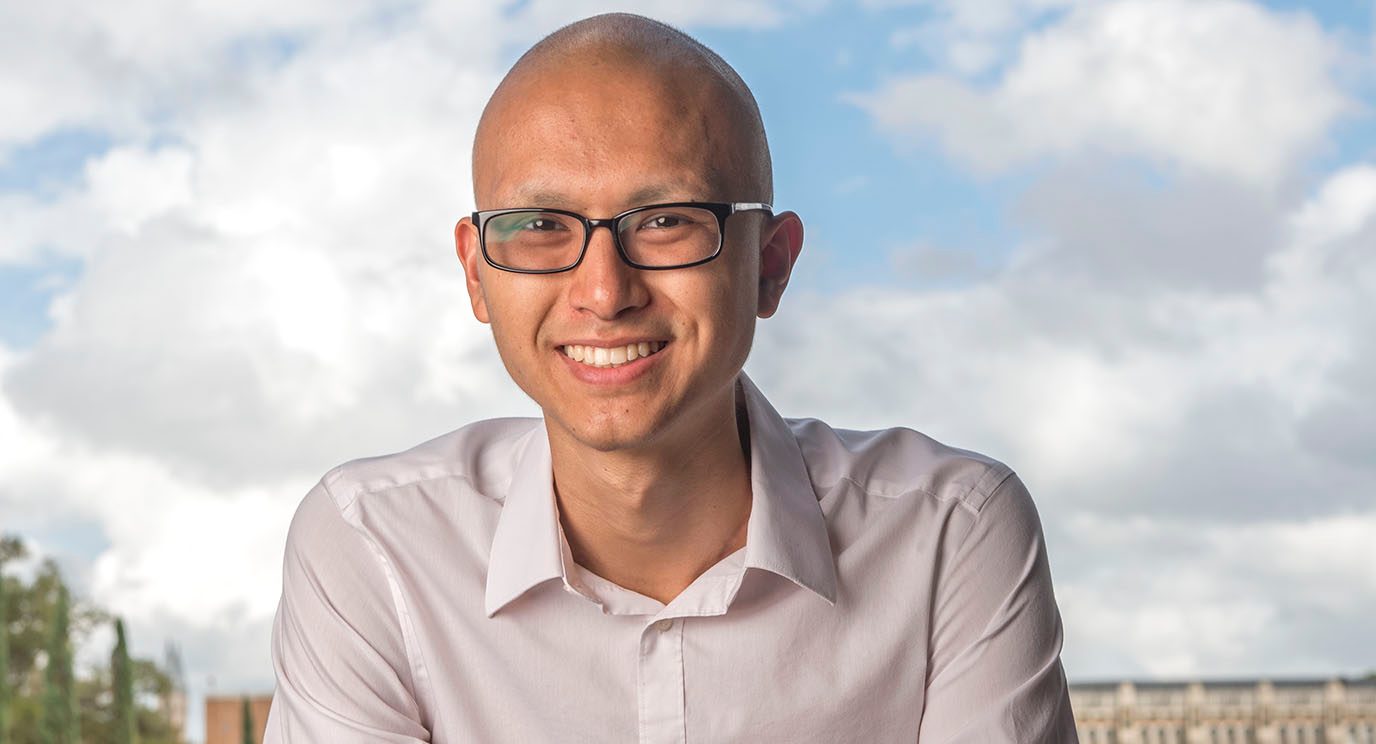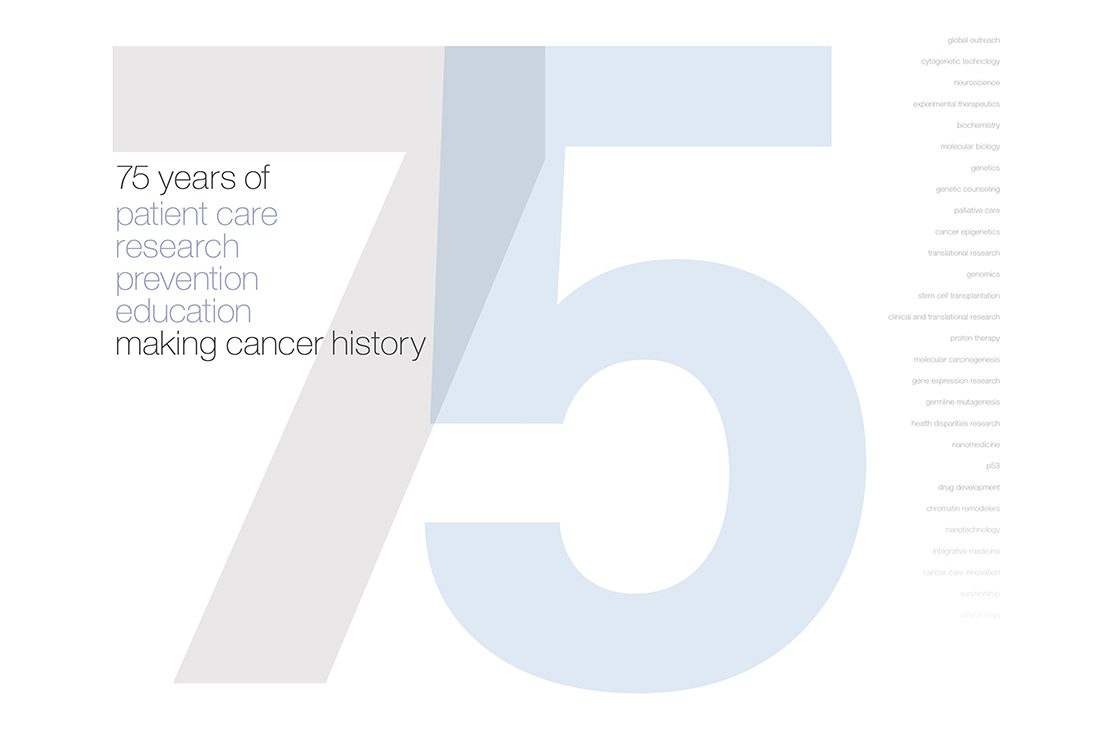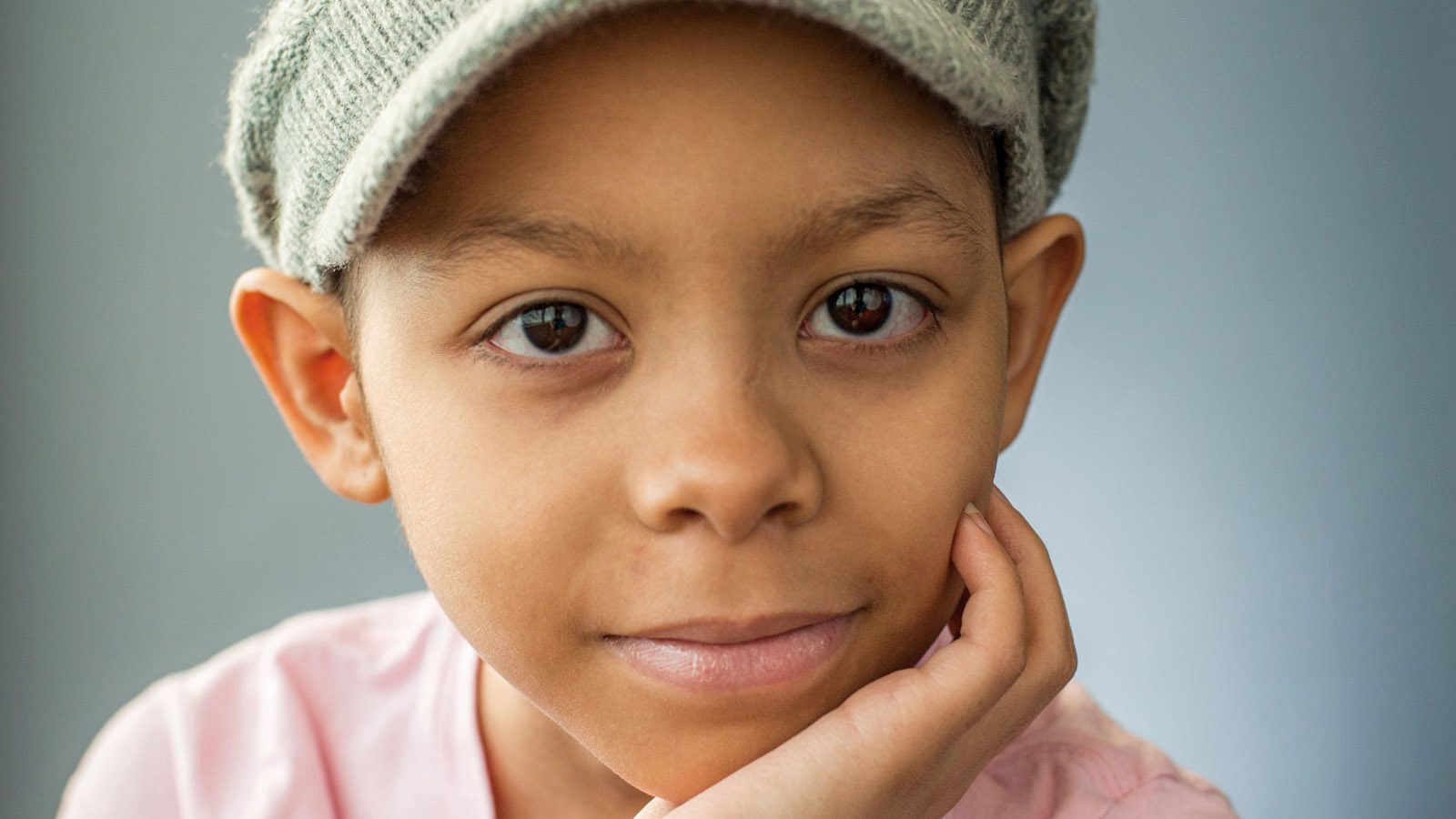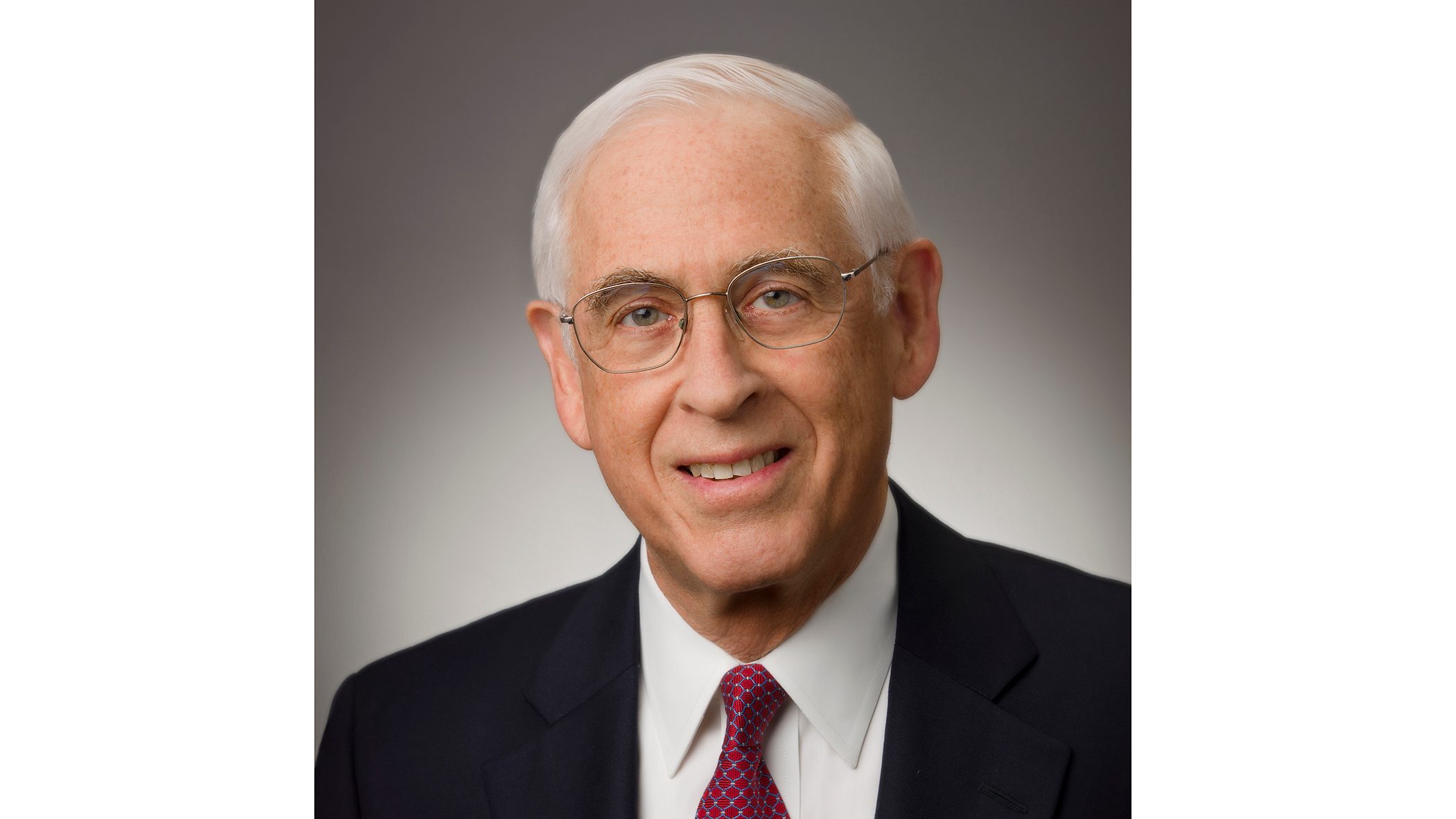
Annual Report 2013
MD Anderson Cancer Center's 2012-2013 Annual Report highlights achievements and contributions of our faculty, staff, volunteers and donors in advancing the research, treatment and prevention of cancer. It also provides key financial and statistical data.

As a dermatologist and dermatopathologist, Kenneth Tsai, M.D., Ph.D., has set his sights on preventing squamous cell carcinoma — the...
People with inherited conditions that raise their risk of developing certain cancers, such as colon cancer, deal with a lot of anxiety...
Improving odds by making cancer more predictable
Paul Scheet, Ph.D., has a background in population genetics, which makes his role in the cancer prevention process a unique and...
Dallas’ Lyda Hill is determined to help solve “the mystery that is cancer.”
Innovation grows from seed money
The Seed-funding Research Program helps scientists, researchers and clinicians across the institution launch innovative cancer...
An old blood test now offers new hope and possibility.
In 1983, Robert Bast Jr., M.D., and his colleagues published a seminal paper in the New England Journal of Medicine detailing his...
Imagine if oncologists around the world had access to the expertise of MD Anderson’s physicians. The standard of cancer care would be...
Historically, research and patient care have been kept separate or “siloed.” Guillermo Garcia-Manero wants to change that.
When Mary Cates was told she had cancer, she didn’t flinch . . . either time.
Cancer is a genomic disease, and Harshad Mahadeshwar’s job is to decode its weaknesses.
The Oncology Expert Advisor
There were 14.1 million new cancer cases worldwide in 2012.
MD Anderson system is bolstered by Graduate Medical Education’s homegrown experts
A year in, this duo of deans is racking up the accomplishments
The first drug to improve the survival of people with end-stage melanoma works because of what it doesn’t do: attack tumors directly.
By boosting the number of T cells in his patients, Patrick Hwu is watching their immune systems defeat cancer.
Michael Gunter’s had time to think about melanoma.
Marit Peterson may be genetically predisposed to melanoma, but the disease was no match for her and her team.
When immune system T cells that can’t kill a patient’s cancer get a shot at those same tumor cells in the lab, it’s another story...
The Cancer Center Support Grant
Every five years, the National Cancer Institute (NCI) evaluates the research programs and facilities at MD Anderson to determine if...
Treatments relying on T cells, a key component of the body’s immune system, have had significant success, but a new experimental...
Generally speaking, hypermutation and DNA damage in a cell are bad things. That is, unless you’re talking about an immune system B...
The Nocturnal Program ensures a seamless transition from day to night for patients
When Lakeisha Day sees a patient in the wee hours, she knows she needs to make the most of their limited time together.
Acts of kindness are completely voluntary
They’re known as the heart of MD Anderson. The 1,200 volunteers in blue jackets are true warriors in the battle to eliminate cancer.
Gloria Ayala walked into a hospital room and found a mother pacing while her daughter lay in bed. When Ayala was greeted with a big...
By exposing cancer cells, fluorescence makes surgeons’ jobs easier.
Treating cancer while preserving form and function.
Gift of gratitude boosts head and neck cancer research
Growing network of hospitals expands opportunities to end a global crisis
Previous Issues
View archives



































